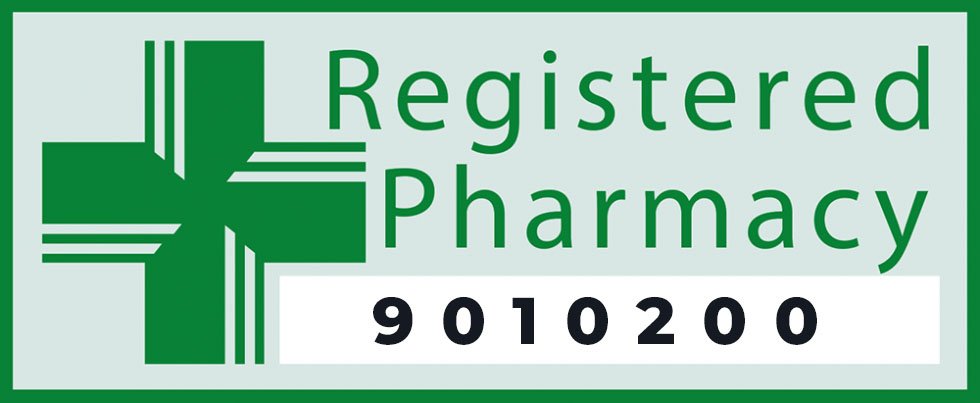Finasteride 1mg is a medication specifically formulated for the treatment of male pattern hair loss, a common condition characterised by thinning hair on the scalp, leading to a receding hairline or balding on the top of the head. It is effective in promoting hair regrowth and preventing further hair loss by altering hormonal activity. Finasteride is more commonly known under its brand name Propecia.
£32.00
Out of stock
Key Features:
– Hair Regrowth: Finasteride 1mg is clinically proven to promote the regrowth of hair by reducing the levels of dihydrotestosterone (DHT) in the scalp. DHT is a hormone that contributes to hair follicle shrinkage and hair loss.
– Slows Hair Loss: Regular use of Finasteride 1mg has been shown to effectively slow down the natural progression of male pattern hair loss.
Finasteride 1mg is most beneficial when used consistently as part of a long-term hair care regimen. It is specifically designed for use by adult men and is not suitable for women or children.
What is Finasteride 1mg?
Finasteride 1mg is an oral medication that belongs to a class of drugs known as 5-alpha reductase inhibitors. It targets the underlying cause of male pattern hair loss by inhibiting the conversion of testosterone to DHT. High levels of DHT contribute to the shrinkage of hair follicles and subsequent hair loss in genetically susceptible men.
Summary of Finasteride 1mg:
– Condition Prescribed For: Treatment of male pattern hair loss in men.
– Class of Drug: 5-alpha reductase inhibitors.
– Active Ingredient: Finasteride.
– Available Strengths: 1mg tablets.
– Administration: Oral intake, once daily.
– Possible Side Effects: Sexual dysfunction (including decreased libido, erectile dysfunction, ejaculation problems), breast tenderness and enlargement, hypersensitivity reactions, depression, palpitations, and changes in liver enzyme levels.
How Finasteride 1mg Works:
Finasteride 1mg works by inhibiting the 5-alpha reductase enzyme, responsible for converting testosterone into DHT. By lowering DHT levels in the scalp, it reduces the miniaturisation of hair follicles, thereby slowing down hair loss and promoting hair regrowth. This process can lead to a significant improvement in hair density and a reduction in hair loss.
Patient Information Leaflet:
For more detailed information on the usage, side effects, contraindications, and precautions associated with Finasteride 1mg please refer to the patient information leaflet for Finasteride 1mg.
How Do I Use Finasteride 1mg?
Finasteride 1mg should be taken once daily, with or without food. Consistency in timing is important for best results. The full effect may take several months to become evident, and continuous use is necessary to maintain the benefits. If treatment is stopped, the beneficial effects begin to reverse within six months.
Safety and Precautions:
Before starting Finasteride, it’s important to discuss with your doctor or pharmacist if you’re scheduled to have a PSA (prostate-specific antigen) test for prostate cancer, as Finasteride can influence the results of this test. Patients should be aware that mood changes, including feelings of depression and, less frequently, suicidal thoughts, have been reported with Finasteride use. If you experience any of these symptoms, it’s crucial to stop taking Finasteride and seek immediate medical advice. Concerning fertility, there have been reports of infertility in men who have taken Finasteride for an extended period, particularly in those with other risk factors affecting fertility. However, improvement or normalization of seminal quality has been observed after discontinuing the medication. Long-term studies on the effects of Finasteride on male fertility have not been conducted.
Regarding breast cancer, patients are advised to report any changes in breast tissue, such as lumps, pain, enlargement, or nipple discharge, to a healthcare professional, as these could be signs of a serious condition like breast cancer.
If you are taking other medications, inform your doctor or pharmacist, especially if you are already taking finasteride or dutasteride for benign prostatic hyperplasia (BPH). There is no available information on the concurrent use of Finasteride with minoxidil, another treatment for male pattern hair loss.
Finasteride is specifically for male pattern hair loss and should not be taken by women. Women, particularly those who are pregnant or planning to become pregnant, should avoid handling crushed or broken Finasteride tablets, as the medication can potentially harm the baby’s sex organs. In case of accidental contact with crushed or broken tablets, it’s important to consult a doctor.
Finasteride is unlikely to affect your ability to drive, use tools, or operate machinery. However, if you have been told by your doctor that you have an intolerance to some sugars, you should contact your doctor before taking this medication, as Finasteride contains lactose. Additionally, this medicine contains a negligible amount of sodium, essentially making it ‘sodium-free’.
For more detailed information on the usage, side effects, contraindications, and precautions associated with Finasteride 1mg please refer to the patient information leaflet for Finasteride 1mg.
Common Side Effects:
Finasteride 1mg, like all medications, can cause side effects, although not everyone experiences them. Some side effects may diminish with continued treatment or disappear after stopping the medication.
The most common side effects include sexual dysfunction, which may manifest as a reduced desire for sex, difficulty in achieving an erection, or problems with ejaculation, such as a decrease in the amount of semen released during sexual activity. This reduction in semen volume does not typically affect normal sexual function. Other side effects can include breast swelling or tenderness, palpitations (feeling your heartbeat), and pain in the testicles.
In some cases, blood may be present in semen. After discontinuing treatment, some men have reported persistent difficulties in achieving an erection, a continuous decrease in sex drive, and ongoing problems with ejaculation. Additionally, there have been reports of male infertility and/or poor semen quality, changes in liver function (which can be detected through blood tests), and anxiety. It’s important to note that Finasteride does not affect hair growth on other parts of the body. If any of these side effects become serious, or if you notice any other side effects not listed here, please inform your doctor or pharmacist. Remember, it’s helpful to keep a record of any side effects, noting when they started and how long they lasted.
When Should Finasteride 1mg NOT Be Used?
Finasteride 1mg should not be used in certain situations and by specific groups of people:
For more detailed information on the usage, side effects, contraindications, and precautions associated with Finasteride 1mg please refer to the patient information leaflet for Finasteride 1mg.


privateprescriptions@
pharmaease.co.uk
This website is operated by Nationwide Healthcare Solutions Limted t/a Pharmaease. Registered in England, company number: 07278785. Registered office: 172 Willows Lane, Bolton, BL3 4BU. Registered with Information Comissioners Office, registration: ZA408214. Registered with the General Pharmaceutical Council, registration number: 9010200. Superintendent Pharmacist: Mr. Muhammad Rafiq, registration number: 2065278.